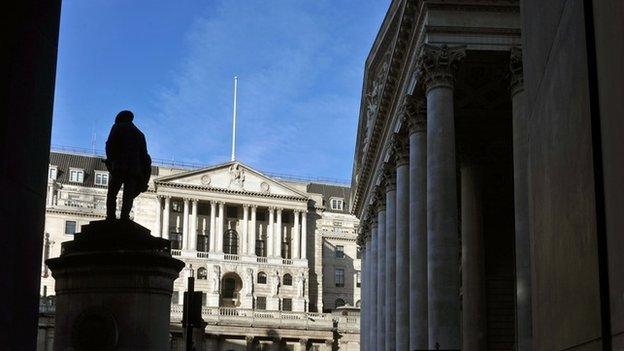Who judges the Bank of England?
- Published
- comments

MPs on the Treasury Select Committee have profound doubts about whether the Bank of England, with all its sweeping economic and regulatory powers, is subject to sufficient checks and balances - whether its governance is adequate.
These concerns have been sharpened by last week's disclosure that the Bank had suspended an employee, following allegations that it was aware eight years ago of suspected manipulation of the multi-trillion-dollar foreign exchange market.
The Bank denies it colluded in market-rigging.
But any day now its so-called oversight committee will confirm that the allegations of the Bank ignoring signs of market corruption will be independently investigated and evaluated by a senior external lawyer, whose work will be based on a soon-to-be-completed initial report by the solicitors Travers Smith.
Bank of England governor Mark Carney might well wish to make this announcement when grilled today by MPs.
But he can't, and won't - because that would damage the independence of the oversight committee, made up of non-executives from the Bank's court or board, and would go some way to corroborate MPs' fears that Mr Carney and his fellow executives aren't sufficiently held to account.
Also, and as a Bank director said to me, the Bank does not dare invoke its traditional secrecy when faced with such grave accusations.
I asked him whether the yet-to-be-chosen external lawyer was likely to conclude the Bank was innocent, negligent or wilfully blind to currency fixing - or even, perhaps, complicit, for all its assertions that there is no evidence that it colluded.
His answer, that he simply did not know, was not what I anticipated.